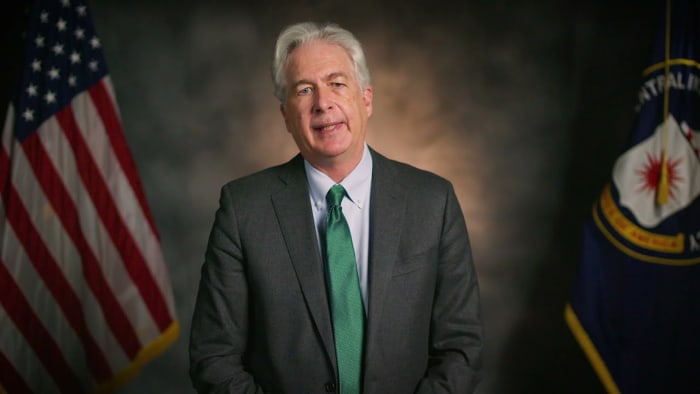
- As U.S.-China relations face growing tension, high-profile figures from both nations, including CIA director Bill Burns and CEOs like Jamie Dimon and Elon Musk, are leading diplomatic and economic efforts to stabilize the situation.
- The visits by top U.S. officials and business leaders to China underscore the interdependence of the two nations, contradicting discussions about "decoupling" and highlighting the significance of maintaining strong diplomatic and economic ties.
- Despite diplomatic setbacks and geopolitical disputes, these visits represent continued efforts to keep communication open, suggesting that both nations understand the importance of their relationship in the global political and economic landscape.
Navigating Geopolitics: CIA Chiefs and CEOs in China
In an intriguing blend of diplomacy and high-stakes business, both governmental figures and influential CEOs from the United States have recently been spotted in China. The common goal of these unlikely comrades? To navigate the complex and tumultuous relationship between two of the world's biggest superpowers.
A Covert Journey and its Ramifications
Without fanfare or public announcement, CIA director Bill Burns made his way to Beijing last month. Burns, a veteran of the State Department and now a key figure in U.S. intelligence, was on a mission. As U.S.-China tensions simmered in the wake of a February spy balloon incident, Burns went behind the scenes to foster communication and prevent relations from fraying further. This covert diplomatic endeavor is symbolic of the critical behind-the-scenes efforts that define international diplomacy.
In tandem with Burns, National security adviser Jake Sullivan had also been seen abroad, attempting to maintain diplomatic channels. While Burns was in Beijing, Sullivan found himself in Vienna, meeting Wang Yi, Beijing's top diplomat. Their respective missions share the goal of maintaining a balanced dialogue between the two nations.
From Boardroom to International Stage
While U.S. government officials are playing their diplomatic cards, key executives from influential American corporations are on a similar quest. Enter Jamie Dimon from JPMorgan, Laxman Narasimhan from Starbucks, and Tesla's Elon Musk. Their destination? Not a cushy hotel or a trendy festival, but China.
Their intent isn't solely about striking business deals or exploring exotic locales, though. With U.S. and China standing as significant markets for their companies, these CEOs find themselves in the precarious position of business diplomats. The mission is to solidify their business relationships, a critical objective as geopolitical tensions between the U.S. and China reach new heights.
Interestingly, these CEO visits have sparked discussions on "decoupling," a term signifying the potential of the U.S. and China operating as distinct economies. However, despite the buzz, key figures like Dimon and Musk have publicly refuted such an idea, highlighting the complex symbiosis that binds the two economic powerhouses.
Navigating Tensions and Pursuing Progress
The U.S.-China relationship is fraught with concerns over human rights, Taiwan, and China's ties with Russia. High-level meetings have been declined, and accusations of aggressive maneuvers have been made. Yet, amidst this diplomatic tussle, certain milestones have been reached. Notably, the recent meeting between Secretary of Commerce Gina Raimondo and her Chinese counterpart, Wang Wentao, marked the first visit of a high-ranking Chinese official to Washington since 2020.
In this intense geopolitical chess game, the presence of U.S. leaders, both political and business, in China underscores the intertwined fates of the two nations. Even as the political climate ebbs and flows, these key figures are clear in their stance: U.S. and China are interconnected on multiple levels, and this connection is too profound to sever. The story of their efforts to navigate these waters reveals the critical role diplomacy plays in the world's ever-evolving geopolitical landscape.